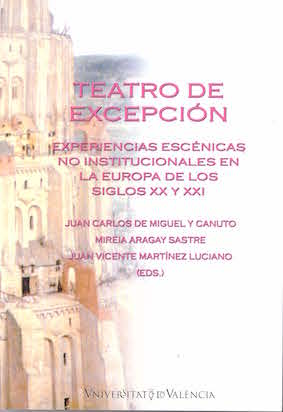Klata, exception and commitment
DOI:
https://doi.org/10.7203/qf-elit.v19i0.5206 Abstract
Abstract
Jan Klata’s stage productions deal with topics related to his country’s (Poland) socio-political life. Whatever subject of a public debate becomes a subject-matter of an analysis and, if possible, of a staging proposal, where he takes sides. Provoking the audience, he makes it polarize sharply and this polarization often involves the proper cast members. His objective as a director relies on classical dramatic texts or on well known novels or poems which he shapes according to a deeply critical vision of the society of his time or of the period which immediately preceded it, under the communist regime. Together with these staging proposals, he alternates other ones based on his own texts, which revolve around Polish social, political or ethnic conflicts. In these cases he chooses non-professional actors in order to propose a theatre of exception.
Keywords: Provocation; feedback between actors and audience; horizon of expectations; political theatre; theatre; marginalized groups; signs; therapy.
 Downloads
Downloads
Downloads
Published
How to Cite
-
Abstract240
-
PDF (Español)102
Issue
Section
License
 Este obra está bajo una licencia de Creative Commons Reconocimiento-NoComercial-SinObraDerivada 4.0 Internacional.
Este obra está bajo una licencia de Creative Commons Reconocimiento-NoComercial-SinObraDerivada 4.0 Internacional.
Authors who publish with this journal agree to the following terms:
- Authors retain copyright and grant the journal right of first publication with the work simultaneously licensed under a Creative Commons Attribution License that allows others to share the work with an acknowledgement of the work's authorship and initial publication in this journal.
- Authors are able to enter into separate, additional contractual arrangements for the non-exclusive distribution of the journal's published version of the work (e.g., post it to an institutional repository or publish it in a book), with an acknowledgement of its initial publication in this journal.
- Authors are permitted and encouraged to post their work online (e.g., in institutional repositories or on their website) prior to and during the submission process, as it can lead to productive exchanges, as well as earlier and greater citation of published work (See The Effect of Open Access).



